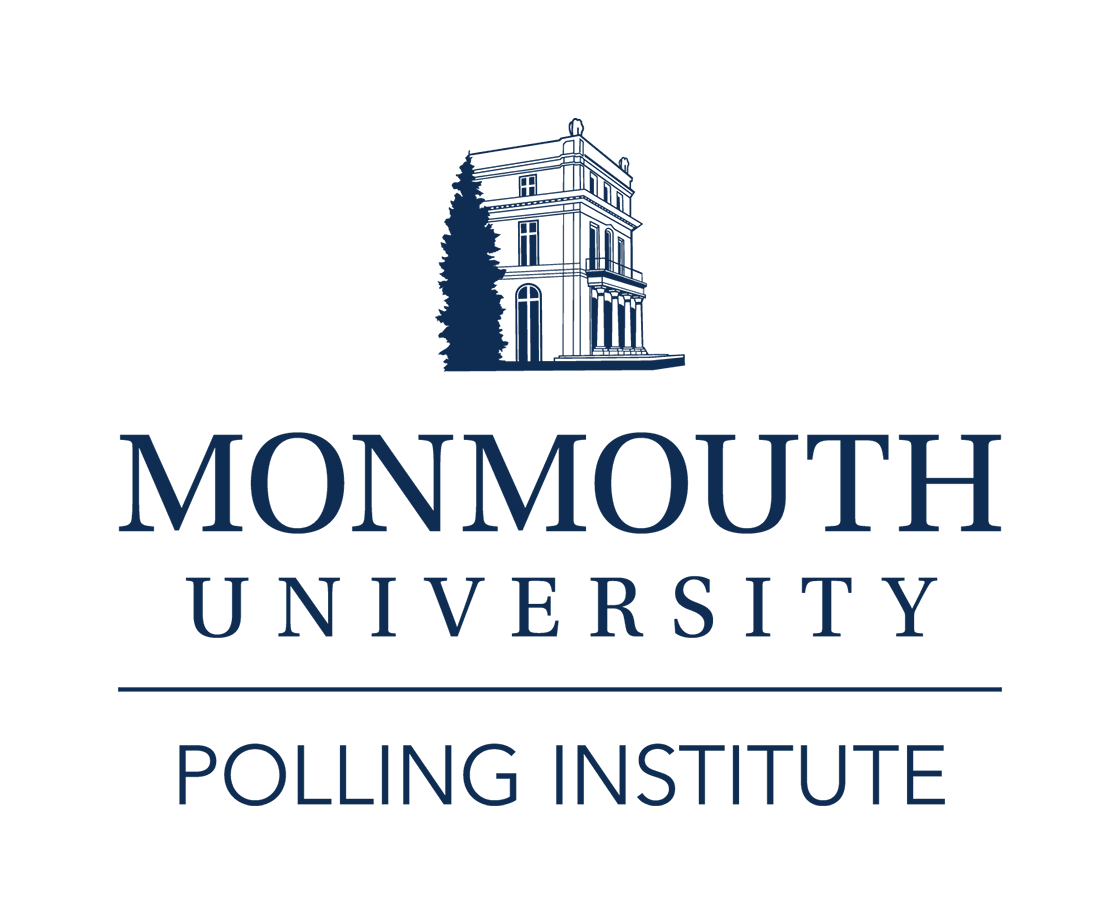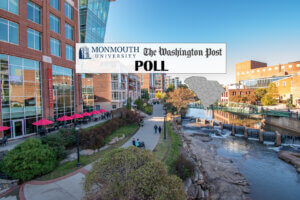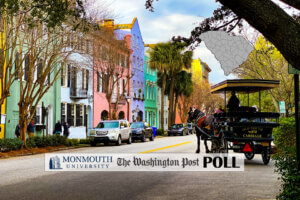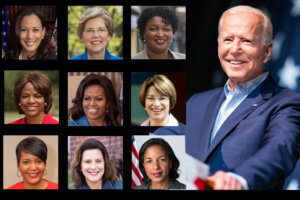West Long Branch, NJ – Ben Carson and Donald Trump are in a virtual tie for the top spot in the first southern contest of the GOP primary season. The Monmouth University Poll of likely South Carolina voters also found that Marco Rubio, who places third overall, is the clear favorite from the so-called “establishment” pack of candidates. However, his so-called “generational appeal” seems to be appealing to a different generation than expected.
Among voters likely to participate in South Carolina’s Republican primary in February, 28% support Ben Carson and 27% support Donald Trump. Marco Rubio places third at 11%, followed by Ted Cruz (9%) and Jeb Bush (7%). None of the other ten candidates in the field scores higher than 2%.
Monmouth’s prior South Carolina poll was conducted in late August just as Carson had started to surge after the first debate. In that poll, Trump led Carson by 30% to 15%. Since then, Trump’s support has held fairly steady, trailing off by only 3 points, while Carson’s support has nearly doubled. Rubio’s share of the vote has grown by 5 points and the Cruz vote has increased by 4 points. Over that same time, Jeb Bush has lost 2 points. Other candidates who have lost support since August include Carly Fiorina (down 4 points to 2%) and home-state senator Lindsey Graham (down 3 points to 1%).
If it came down to choosing from among just four “outsider” candidates, though, more Palmetto State Republicans would back Carson (39%) over Trump (30%). Cruz would get 15% and Fiorina 7%.
“Trump’s South Carolina support has held fairly steady, which means that Carson’s bump has actually come at the expense of almost everyone else in the field,” said Patrick Murray, director of the independent Monmouth University Polling Institute in West Long Branch, NJ.
The poll also presented voters with a hypothetical contest that included eight of the more establishment-type candidates – specifically excluding Trump, Carson, Fiorina, and Cruz. In this fantasy playoff bracket, Marco Rubio leads with 32% support, while Jeb Bush (13%) and Chris Christie (10%) trail far behind. Rounding out the field are Mike Huckabee (8%), Bobby Jindal (4%), Lindsey Graham (4%), Rand Paul (4%), and John Kasich (3%). Another 11% say they would not vote for any of the candidates in this hypothetical match-up. Among current Trump supporters, 26% would go with Rubio from this field of eight, 14% would choose Christie, and 9% select Bush. Among Carson voters, it’s Rubio (36%) in the lead, followed by Bush (13%), Christie (10%), and Huckabee (10%).
“It’s highly unlikely that the GOP contest will continue into the spring without at least one of the outsider candidates still in the race. However, Marco Rubio looks to be the fallback position for many voters should this field ever get winnowed down,” said Murray.
The GOP nomination contest remains very fluid. Just 17% of likely South Carolina primary voters say they are completely decided on their vote choice, while another 39% say they have a strong preference but are still willing to consider other candidates. Another 23% say their current pick is only a slight preference and 20% say they are really undecided even if they name a first choice at this time. Trump’s support appears to be a little more solid than the rest of the field, with 33% of his backers saying their minds are completely made up, compared to just 12% for Carson.
The poll also looked at vote support among key groups of likely primary voters, including:
- Ideology – Carson has improved his standing across the ideological spectrum since August, with increased support among voters who call themselves very conservative (up 10 points to 31%), somewhat conservative (up 14 to 27%), and moderate (up 14 to 24%). Trump has lost support among very conservatives (down 11 points to 22%), stayed steady among somewhat conservatives (down 2 to 29%), and gained support among moderates (up 8 points to 31%).
- Evangelicals – Carson (33%) leads Trump (24%) among the nearly two-thirds of voters who call themselves evangelical Christians. Three months ago, Trump (33%) led Carson (18%) with this group.
- Age – Carson leads the field among voters under 50 years old at 38% support compared to 24% for Trump, 7% for Cruz, 7% for Bush, and 5% for Rubio. Among those age 65 and older, Trump (26%) has a narrow lead, followed closely by Rubio (19%), Carson (17%), Cruz (10%), and Bush (8%).
“The pundits are making a lot out of Rubio’s potential generational appeal. They may have the wrong generation, though. Rubio actually does better in the ‘grandma vote’ than he does among his own age cohort. Carson is actually the top choice of younger voters. We found these same age dynamics in Monmouth’s New Hampshire poll last week,” said Murray. “The fact that younger voters are much stronger for Carson than older voters is reminiscent of Ron Paul’s support four years ago.” According to the National Election Pool exit polls, Paul won the under-30 vote in all four of the early state Republican primary contests in 2012.
Looking at the candidates’ fundamental strengths, Ben Carson continues to earn the most positive reviews from GOP primary voters in South Carolina at 76% favorable and just 12% unfavorable, largely unchanged from August (72% – 9%). Marco Rubio is close behind at 62% favorable and 18% unfavorable, ticking up slightly from 58% – 16%. Donald Trump enjoys a 58% favorable – 29% unfavorable, nearly identical to his August numbers (58% – 28%). Ted Cruz clocks in at 52% favorable – 21% unfavorable rating, up slightly from 47% – 21%. Carly Fiorina has a 51% – 22% rating, down somewhat from the 55% – 15% rating she held in August.
Jeb Bush’s negative 41% favorable – 43% unfavorable rating marks a sharp decline from the positive 52% – 32% rating he held three months ago. Palmetto State Republicans also hold a decidedly negative opinion of their own senator. Lindsey Graham earns a dismal 30% favorable – 53% unfavorable rating, which is slightly worse than his 35% – 50% rating in August.
“It’s difficult for Graham to argue there’s a rationale for his candidacy when his home state numbers are this poor,” said Murray.
The Monmouth University Poll was conducted by telephone from November 5 to 8, 2015 with 401 South Carolina voters likely to vote in the Republican presidential primary. This sample has a margin of error of ± 4.9 percent. The poll was conducted by the Monmouth University Polling Institute in West Long Branch, NJ.
DATA TABLES
The questions referred to in this release are as follows:
(* Some columns may not add to 100% due to rounding.)
1. Who would you support if the presidential primary was being held today and the candidates for the Republican nomination were – [NAMES WERE ROTATED]
| Nov. 2015 | Aug. 2015 | |
| Ben Carson | 28% | 15% |
| Donald Trump | 27% | 30% |
| Marco Rubio | 11% | 6% |
| Ted Cruz | 9% | 5% |
| Jeb Bush | 7% | 9% |
| Carly Fiorina | 2% | 6% |
| Mike Huckabee | 2% | 3% |
| Chris Christie | 1% | 2% |
| Lindsey Graham | 1% | 4% |
| John Kasich | 1% | 3% |
| Rand Paul | 1% | 3% |
| Rick Santorum |
<1% | 1% |
| Jim Gilmore | 0% | 0% |
| Bobby Jindal | 0% |
<1% |
| George Pataki | 0% |
<1% |
| (VOL) Other | 0% | 0% |
| Rick Perry |
n/a |
<1% |
| Scott Walker |
n/a | 4% |
| (VOL) Undecided | 9% | 11% |
2. Which of the following best describes where your decision stands at this moment: I am completely decided on which candidate I will support, I have a strong preference right now but I am willing to consider other candidates, I have a slight preference among a group of candidates I like, or I am really undecided among a number of candidates?
| Nov. 2015 | |
| Completely decided | 17% |
| Strong preference | 39% |
| Slight preference | 23% |
| Undecided | 20% |
[QUESTIONS 3 & 4 WERE ROTATED]
3. If the choices were limited to the following candidates, who would you choose? [NAMES WERE ROTATED]
| Nov. 2015 | |
| Jeb Bush | 13% |
| Chris Christie | 10% |
| Lindsey Graham | 4% |
| Mike Huckabee | 8% |
| Bobby Jindal | 4% |
| John Kasich | 3% |
| Rand Paul | 4% |
| Marco Rubio | 32% |
| (VOL) No one | 11% |
| (VOL) Undecided | 10% |
4. If the choices were limited to the following candidates, who would you choose? [NAMES WERE ROTATED]
| Nov. 2015 | |
| Ben Carson | 39% |
| Ted Cruz | 15% |
| Carly Fiorina | 7% |
| Donald Trump | 30% |
| (VOL) No one | 3% |
| (VOL) Undecided | 6% |
5. I’m going to read you a few names of people who are running for president in 2016. Please tell me if your general impression of each is favorable or unfavorable, or if you don’t really have an opinion. [NAMES WERE ROTATED]
|
Favorable | Unfavorable |
No | |
| Former Florida Governor Jeb Bush |
41% | 43% |
16% |
| –August 2015 |
52 | 32 |
16 |
| Commentator and Doctor Ben Carson |
76% |
12% |
12% |
| –August 2015 |
72 |
9 |
19 |
| Texas Senator Ted Cruz |
52% |
21% |
27% |
| –August 2015 |
47 |
21 |
32 |
| Businesswoman Carly Fiorina |
51% |
22% |
26% |
| –August 2015 |
55 |
15 |
31 |
| South Carolina Lindsey Graham |
30% |
53% |
16% |
| — August 2015 |
35 |
50 |
14 |
| Florida Senator Marco Rubio |
62% |
18% |
19% |
| — August 2015 |
58 |
16 |
26 |
| Businessman Donald Trump |
58% |
29% |
13% |
| — August 2015 |
58 |
28 |
14 |
The Monmouth University Poll was sponsored and conducted by the Monmouth University Polling Institute from November 5 to 8, 2015 with a statewide random sample of 401 South Carolina voters drawn from a list of registered voters who participated in at least one South Carolina primary in 2012 or 2014, or in both the 2012 and 2014 general elections and indicate they will vote in the Republican presidential primary in February 2016. This includes 281 contacted by a live interviewer on a landline telephone and 120 contacted by a live interviewer on a cell phone, in English. Monmouth is responsible for all aspects of the survey design, data weighting and analysis. Final sample is weighted for age and gender based on state registration list information on the pool of voters who participate in primary elections. Data collection support provided by Braun Research (field) and Aristotle (voter list and non-voter sample). For results based on the total sample, one can say with 95% confidence that the error attributable to sampling has a maximum margin of plus or minus 4.9 percentage points (unadjusted for sample design). Sampling error can be larger for sub-groups (see table below). In addition to sampling error, one should bear in mind that question wording and practical difficulties in conducting surveys can introduce error or bias into the findings of opinion polls.
|
POLL DEMOGRAPHICS (weighted) | |||
| 58% State primary voter | 50% Male |
7% 18-34 | 96% White, non-Hispanic |
| 42% Other voter | 50% Female | 24% 35-49 | 4% Other |
| 38% 50-64 | |||
| 32% 65+ | |||
Click on pdf file link below for full methodology and results by key demographic groups.




